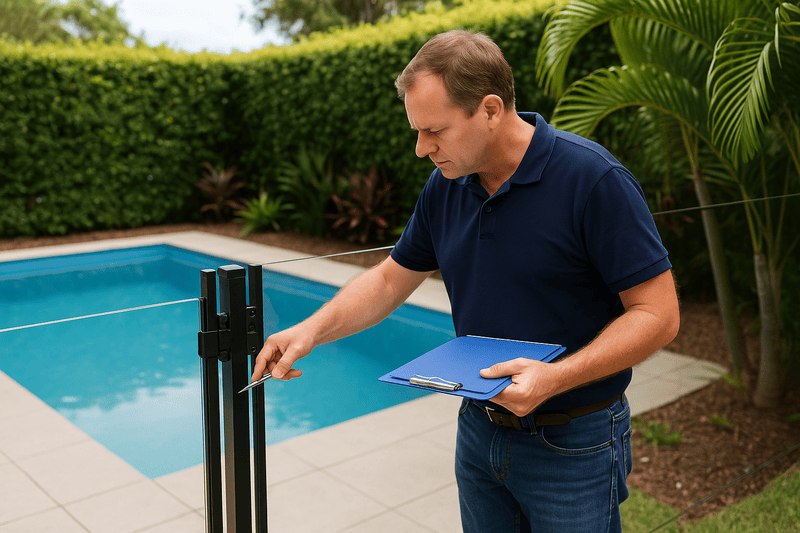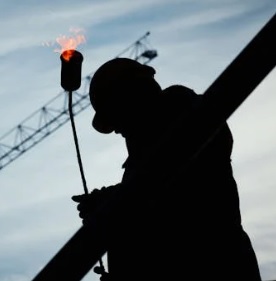
Owning a pool on the Sunshine Coast can be a dream come true, especially when summer rolls around. But that dream comes with responsibilities. One of the most critical yet often overlooked requirements is holding a current, compliant pool safety certificate. Without it, you may not legally lease or sell your property — and worse, your pool might pose risks to those who use it.
So why are so many pools failing inspections? What catches inspectors’ attention? And what can you do to stay ahead of the game?
What Is a Pool Safety Certificate, and Who Needs One?
A pool safety certificate is an official document issued by a licensed pool safety inspector confirming your pool complies with Queensland’s strict safety regulations. These regulations are enforced by the Queensland Building and Construction Commission (QBCC) to reduce preventable injuries and drowning incidents — especially among young children.
You may need a pool safety certificate if:
- You are selling or leasing a property with a pool
- Your property is part of shared accommodation (e.g. a body corporate or short-stay rental)
- You’ve recently installed or renovated a pool
The certificate is valid for one year (for shared pools) or two years (for non-shared pools). After that, it must be renewed with a fresh inspection.
Common Reasons Pools Fail Safety Inspections
Being told your pool failed the inspection can be frustrating, particularly if you were confident everything was in order. But it’s more common than you think.
Some of the most frequent reasons for failure include:
- Non-compliant pool fences – This is the most common issue. Your fence must be at least 1200mm high, free from climbable objects within a 900mm radius, and have no gaps larger than 100mm.
- Faulty or absent self-closing gates – Gates must swing outward from the pool area, close automatically from any position, and latch securely without assistance.
- Incorrect or missing CPR signage – Every pool must have a compliant CPR sign visible from the pool area, positioned in line with Queensland guidelines.
- Climbable objects – Items such as pot plants, chairs, BBQs, and pool toys often get overlooked. Anything a child could use to scale a fence is considered non-compliant.
- Gaps under fences – Soil erosion can result in excess clearance between the ground and the fence, making it easy for small children to crawl underneath.
A good pool inspector in the Sunshine Coast will point out these issues and advise on simple remedies, but prevention is better than failing the first time around.
What to Expect During a Pool Safety Inspection
If you’ve never gone through an inspection before, it may sound intimidating. In reality, the process is straightforward and usually completed within an hour. Here’s what typically happens:
- The inspector arrives and conducts a visual assessment of the pool enclosure and surrounding areas.
- Measurements are taken for fence height, gate compliance, and barrier gaps.
- Any hazards such as climbable structures are identified.
- CPR signage is checked for visibility and correct wording.
- If compliant, the pool safety certificate is issued shortly after. If not, a detailed nonconformity notice is provided, giving you time to rectify the problems.
According to local professionals, most issues can be resolved relatively quickly if caught early.
Why Compliance Matters – It’s Not Just a Legal Box to Tick
While legal obligations are a strong motivator, compliance is ultimately about preventing tragedy. According to Royal Life Saving Australia, backyard pools remain the most common location for child drownings nationwide. Many of these deaths could have been avoided with a functioning barrier and self-latching gate.
Beyond safety, failing to comply can carry significant penalties. Property owners who lease or sell a property without a valid pool certificate can face fines exceeding $2,000.
Additionally, if an incident occurs on a non-compliant property, liability risks rise considerably — especially if negligence is found.
How to Get Pool-Inspection Ready
Preparation is key. Before booking your inspection, take the time to walk around your pool area and review the following:
- Ensure gates open away from the pool and close/latch correctly
- Measure your fence height and check for erosion beneath
- Remove or relocate furniture, trees, and other climbables
- Replace any faded or outdated CPR signage with an up-to-date version
- Look for any protrusions or footholds that a child could use to climb
It may also help to review blog articles on home safety or landscaping around pool fences to better understand potential risks.
Hiring a reliable pool inspector in the Sunshine Coast ensures you’re not second-guessing your own assessment. Their eye for detail may pick up on what you’ve missed.
When Should You Reinspect or Renew?
As mentioned earlier, your pool safety certificate may only be valid for one to two years. Here’s when you may need a reinspection:
- If you’ve made changes to your pool fence or gate
- If you’ve received a complaint from a neighbour or council
- If your property has changed usage (e.g. started renting or listing on Airbnb)
- If the certificate has expired and you plan to sell or lease the property
It’s good practice to set a reminder well before your certificate lapses. Some Sunshine Coast inspectors also offer renewal alerts as part of their service.
The Role of Trusted Local Inspectors
Working with a licensed and experienced inspector who knows the local area can make a major difference. They’re familiar with regional climate challenges like corrosion or erosion, understand council-specific rules, and may provide faster service due to proximity.
The team at Smart Pool Safety are known for helping homeowners navigate the process with clarity and confidence. Their feedback is constructive, focused on keeping families safe — not passing or failing for the sake of it.
Final Thoughts: Prioritising Safety Over Shortcuts
Securing a pool safety certificate on the Sunshine Coast shouldn’t be an afterthought or a tick-box exercise. It’s a legal requirement with real-world consequences — and more importantly, a safeguard for your family, guests, and neighbours.
Taking time to address hazards now may save you from fines, delays in property transactions, or far worse. Whether you’re leasing, selling, or simply maintaining your home, a compliant pool area is an investment in peace of mind.

Leave a Reply